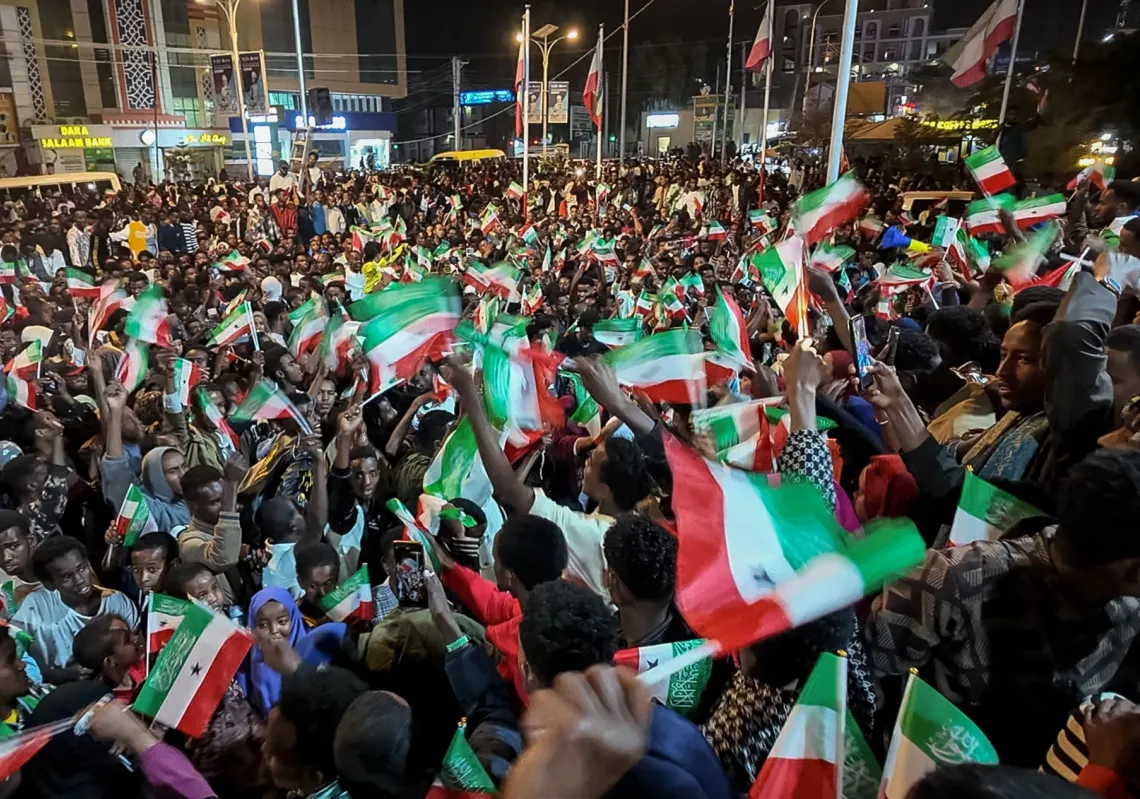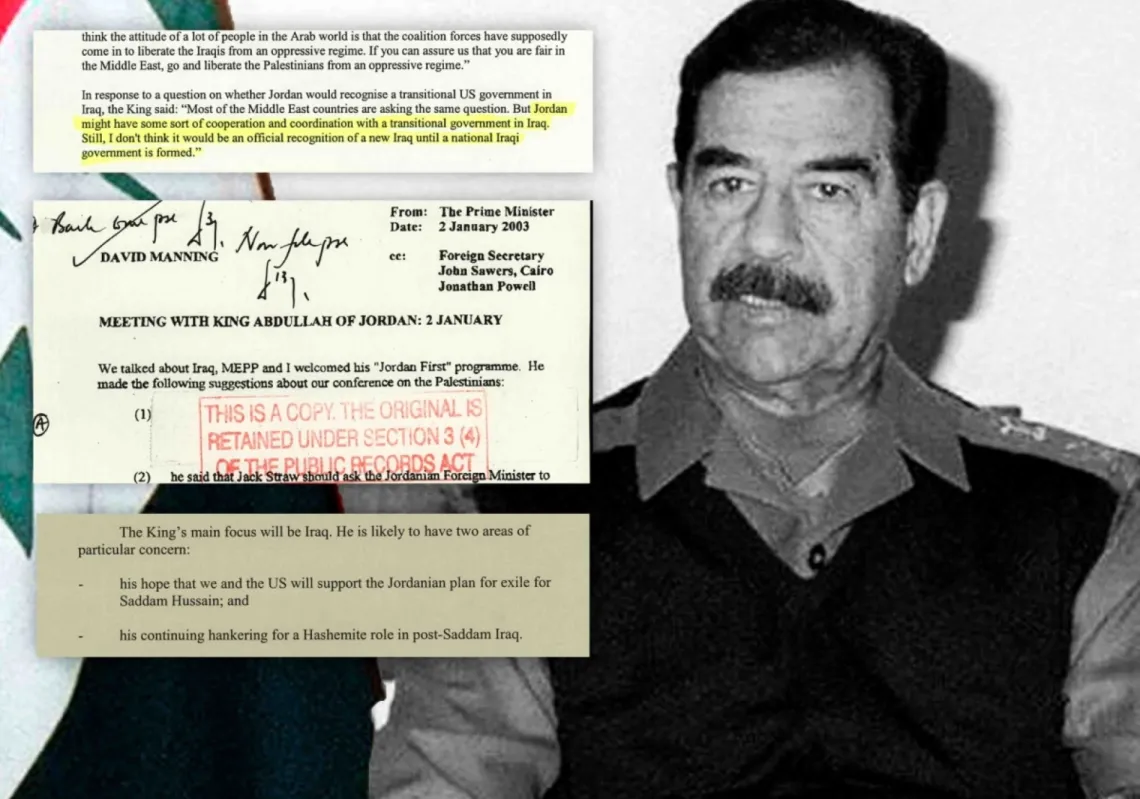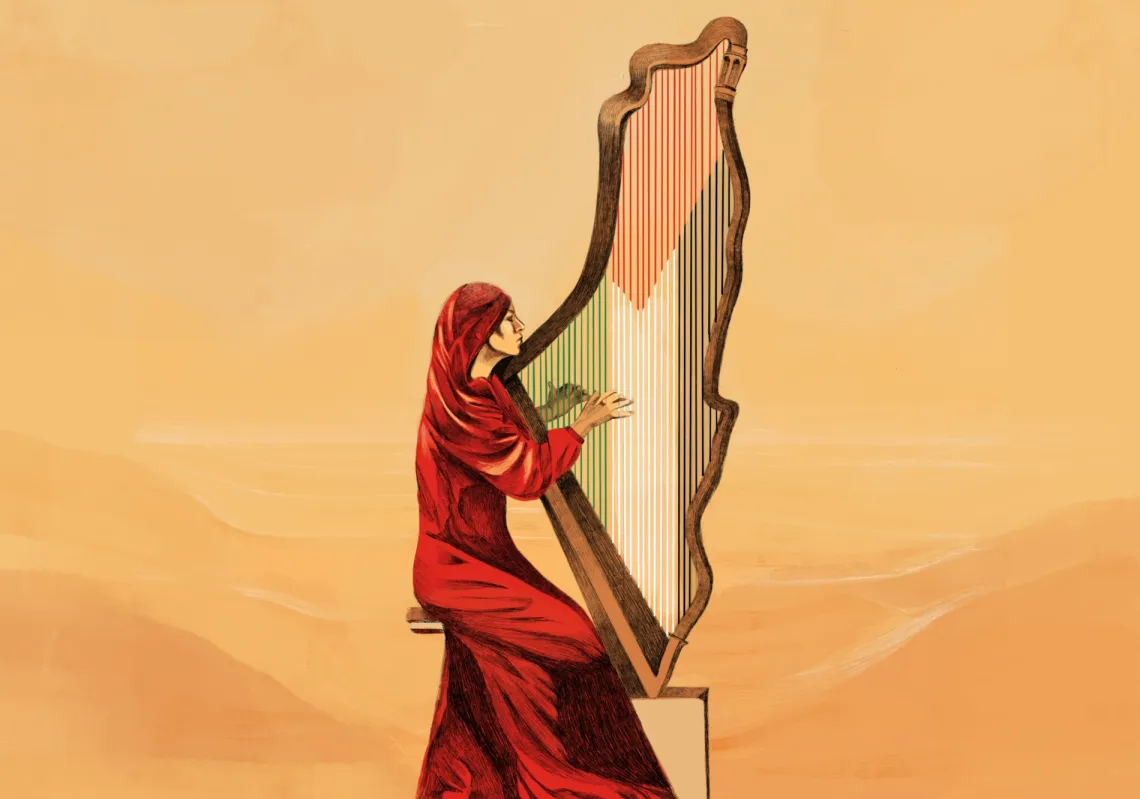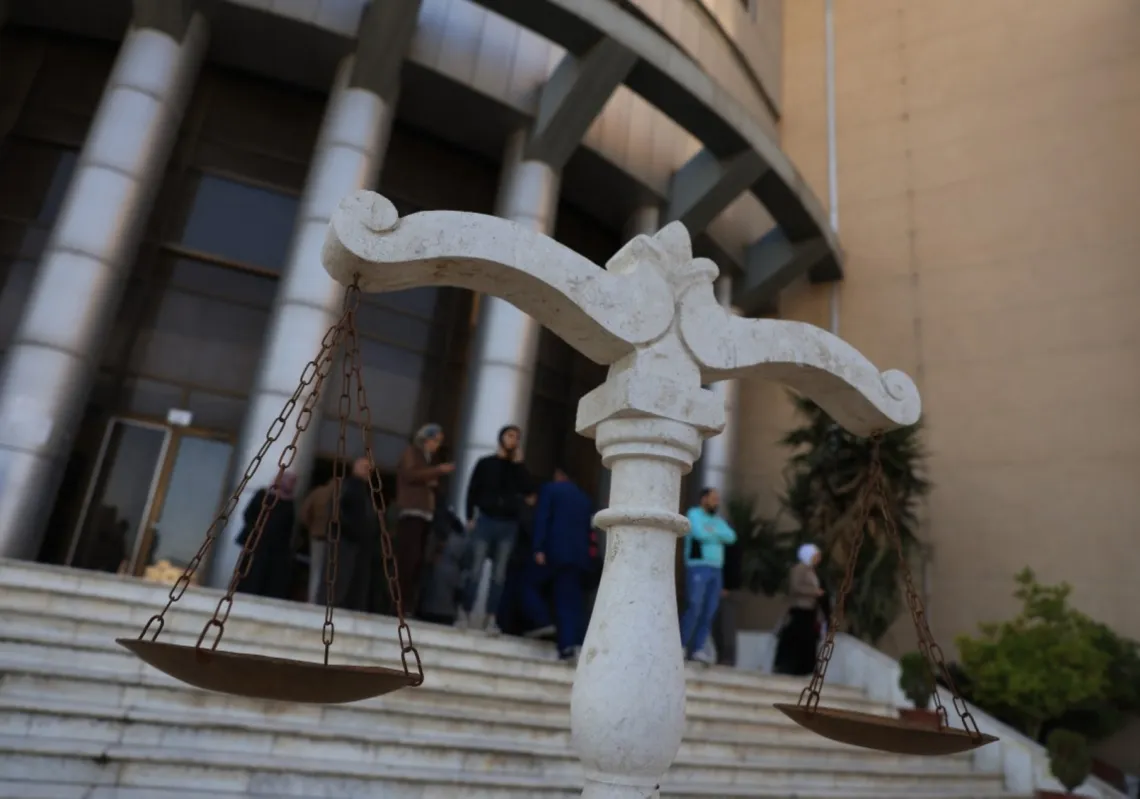Majalla: What is going on in Zahdan?
Abtahi: What happens in Zahdan has several backgrounds, and I think that this issue bears a historical complexity and this is a fact we must acknowledge.
The issue of Sunnis and Shiites in Iran is a sensitive and important one, and throughout history we lived in peace, safety and co-existence.
But after the events of September 11 and after the entry of Al-Qaeda elements into Iranian areas in Sistan,which borders Pakistan, this of course had an impact on the Sunni and Shiite parties and caused considerable violence. On the other hand, during the era of President Ahmadinejad, we have witnessed Shi'ite extremism in the country, especially in the media regarding public issues. This prompted the leader of the revolution, Ali Khamenei, when he visited the Kurdistan region, to believe that this extremism poses a major threat to Iran. We believe that any religious or nationalist group that adopts the radical stance in Iran is a threat to the security of Iran. This of course affects the Sunni groups in Iran negatively. In this context, I see groups not loyal to the Iranian people, or the Sunnis or the Shiites and they benefit from this atmosphere, which is affected by international issues.
Majalla: What is the reason behind the emergence of Shi'ite radicalism that you spoke about? Is there a Shiite fundamentalism?
Abtahi: The government and the president have been working on these issues and manipulated them sometimes. The reason behind their adoption of this discourse and sponsoring this state of radicalism is to court votes and followers within the Shiite community. So I see a political, not an ideological background behind this issue. The rise of Shiite influence on the basic issues of the region such as those of Iraq, Lebanon and Afghanistan and what is being said about Iran's interference in these issues, in addition to Iran's claim of having a role in such issues, all these factors had a negative impact on Iran's relations with countries of the region.
As we witness now, Iran's relations with neighboring countries, especially Saudi Arabia, are not good. This atmosphere affects the unstable conditions in the mixed Sunni-Shiite areas in Iran and this benefited the terrorists in the Zahdan area.
Majalla: You support Sheikh Mahdi Kroubi and Mir Hussein Mousavi is a candidate close to the reformists. This means that we have two reformist candidates. Don't you fear dispersing reformist votes?
Abtahi: I believe that as reformists we need strong candidates, at least more than two. The Iranian constitutional law requires the candidate to obtain 50% of the votes to pass the first phase of elections. This is the first time in the history of the Republic of Iran where the president of the Republic faces real competition, and his rival enjoys the support of some groups in villages and cities.
Thus our plan depends on preventing Ahmadinejad from passing the first stage of the election. For that purpose we have two strong candidates: Kroubi gets the votes of radical reformers in addition to the votes of ethnic minorities, sects and the rural population. Meanwhile Mousavi will get the votes of major cities and traditional voter blocs. This effort of the two candidates basically aims to exclude Ahmadinejad from the first round and thus we ensure entering the second round with two reformist candidates. As for your question about my support to Sheikh Kroubi, we as radical reformists consider Sheikh Mahdi Kroubi more of a reformer than Mir Hussein Mousavi.
Majalla: Do you believe that the Iranian public will repeat the election uprising of 1997 and gather forces to expel Ahmadinejad, the conservatives and bring back reformists to power?
Abtahi: I hope the reformists will assume power again, but so far I can not see the possibility of repeating the 1997 victory when President Khatami was able to claim the presidency, especially after President Ahmadinejad could make use of the Iranian wealth and the economic growth. When he came to power, the country's economy was at its best, and he manipulated the foreign policy to his advantage. He also made great promises domestically, mostly financial and people waited for these promises to be fulfilled. This affects villages and rural areas and small towns. Moreover, government media institutions stand on his side and publicly support him. I wish for a great surprise to occur similar to what happened in the past. I hope for this deep at heart. But let's be realistic, we can win this election but not at the same the level when President Khatami swept the ballots with almost 78% of the vote.
Majalla: Do you think that the state's establishment and the regime controlled by the conservatives will allow the fall of Ahmadinejad?
Abtahi: It is possible that they do not want us back in power, but if the people participated on a wide level, I think that we will be successful in the elections and the people do not obey only what the government wants.
Majalla: What did Ahmadinejad do in Iran?
Abtahi: I think the people were expecting more from him regarding the economic issues. During four years of his rule he issued three economic decisions that were against the interest of Iran, which affected Iran's economy negatively to a great extent. But concerning foreign policy issues, he contemplates issues of other countries more than the ones of his country, which affected him negatively to a considerable extent on the domestic level.
Majalla: Do you believe that Iran is heading towards militarization?
Abtahi: Our biggest problem now is the intervention of the military in the top economic issues. I think that their grip over the economy is more serious than their intervention in society. Here comes the role of reformists, including Sheikh Kroubi, who will work to save the country from military intervention in the economy and drive them away from these issues. I believe that Sheikh Kroubi is a brave man who knows the regime and the state as he belongs to the Iranian political establishment. His history confirms that he is a man who does what he says. This leads me to believe that if he wins the presidential race, one of his top priorities will be taking the country back to free economy and creating the spirit of competition inside society, developing the national capital, as the private sector now can not compete with a government where the military dominates the economy.
Majalla: To what extent do Iranian people enjoy freedom of expression? What about other freedoms under Ahmadinejad's rule?
Abtahi: The problem lies in the absence of freedoms and principles of human rights. In the past, Iranian people participated in different issues of the civil society. Now, even the concept of civil society does not exist. Issues of human rights are not discussed. The atmosphere that prevails is not suitable for such discussion. Only if reformists assume power, this atmosphere would change. In this regard, we feel that declarations of Shiekh Karrubi always deal with issues of human and minorities' rights. These declarations have motivated those who earlier announced that they would boycott elections such as university students, to reconsider the whole matter and take a decision of participating in the elections in order to gain the promised freedoms.
Majalla: Mr. Abtahi, you were the companion of President Khatami and were the vice-president in his second term of office. Now, Mr. Khatami is directly supporting Mir Hussein Mousavi, and you are on the other hand supporting Sheikh Karrubi. What is your explanation?
Abtahi: There is nothing strange about this. I still maintain a relationship with Mr. Khatami as strongly as before. He has his own discretion and we as reformists have our own choices and preferences. I've chosen to support Sheikh Karrubi because I think his attitude is more reform-oriented than Mir Hussein Mousavi's.
Majalla: Why did Mr. Khatami withdraw from the election race?
Abtahi: In fact, Khatami was about to run for elections. But he changed his mind when Sheikh Karrubi followed by Mr. Mir Hussein Mousavi anticipated him and ran for elections. Khatami thought it would be better to keep away from elections as his participation would have a negative impact on the success of the reformists.
Majalla: Did Khatami face any pressures from the Iranian Military Institution?
Abtahi: I don't have any idea about this.
Majalla: Let's change the subject to discuss the issue of foreign policy. Is there any progress in the dialogue between Iran and the USA?
Abtahi: I think the dialogue with America has been discussed by all candidates. This means that the US foreign policy affects all national Iranian issues, especially after inauguration of Obama and his call for change. We found that all candidates have discussed this topic, but the problem is that fundamentalists and conservatives reject any dialogue with the United States and consider America as the biggest enemy of Tehran. They have difficulty in changing their approach to Washington. I think if a reformist is elected as president of Iran, the Iranian foreign policy especially toward the USA would be one of the priorities of the reformists' agenda because Obama is a big opportunity for Iran and he may be more dangerous to Tehran than Bush. The former is able to gain an international support against Tehran, whereas Bush was unable to do so.
Majalla: Why doesn't Iran try to improve its regional relations with the neighbouring states, especially with the Arabs?
Abtahi: Improving regional relations is not an easy matter. It does not happen haphazardly. What matters here is the "hows", mechanisms of work and exchanges between countries that may promote or hinder their relations. I think the tensions between Iran and the Arab World arise from lack of trust, and this factor is a big hurdle to improving relations with the Arab World. We want to regain trust as was the case in Khatami's term of office. Khatami paid too much attention to building trust between Tehran and the Arab World, especially the neighboring states through cooperation with each other. We feel sorry because Iranian relations with the Arabs have deteriorated. The reason I think, is the absence of cooperation between us and the Arab states. This cooperation is the only sure way to overcome many problems that face the region and the whole world.
Majalla: Do you think that Iranian intervention in Lebanon harms Tehran's relations with the Arabs?
Abtahi: We can not deny historical relations and connections between Iran and Hezbollah. I think these relations are not an obstacle in the way of improving relations between Iran and the Arab states, but some issues that may negatively impact these relations are of a Lebanese origin and have nothing to do with Iran. I believe these issues should be dealt with in Lebanon. The Iranian government should develop good relations with all Lebanese sects as Lebanon is a unified country where different sects live with each other. Therefore, Iran should not favour one sect over the other. Tehran should deal with all respectfully. Its foreign policy should be based on neutrality. However, we can neither ignore the historical relations between Iran and Hezbollah nor the vital role played by Hezbollah in defending Lebanon and all Lebanese sects.
Majalla: What are your expectations for Iranian-Egyptian relations?
Abtahi: Well, I believe that the issue of the Iranian- Egyptian relations is too much more complicated and serious than what's said publicly about it. In fact, security men of the Egyptian authority do not want normal relations between Tehran and Cairo. They claim different refutable excuses to put barriers in the way of such relations. I would like to say that in Khatami's term of rule; we did our best to improve diplomatic relations with Egypt. However, we did not succeed in promoting these relations to the desired level. In addition, the tension between the two countries is not a new one. It is not only an Iranian-Egyptian tension but is also a tension between Egypt and the Arabs. Anyway, I think the Iranian diplomatic tone should be adjusted to suit what's going on today.
Majalla: What's your opinion of the Iranian nuclear program and what are the benefits and concessions?
Abtahi: The three candidates have stressed that it is necessary for Iran to own this technology for peaceful purposes. We want to build trust with the world. We want to assure peoples all over the world that we are not heading for building a nuclear bomb or weapon. Again, this program will be used for peaceful purposes. Therefore, I believe that if a reformist is elected as a president of Iran, he will try hard to persuade the whole world that Iran wants to have nuclear technology for peaceful uses only. Iran just wants to be technologically stronger. We don't want to destroy our country through experiencing more pressures and a continued international blockade. That's why we should build trust between Tehran and the world concerning our nuclear program.
Interviewed by: Mustafa Fahs








